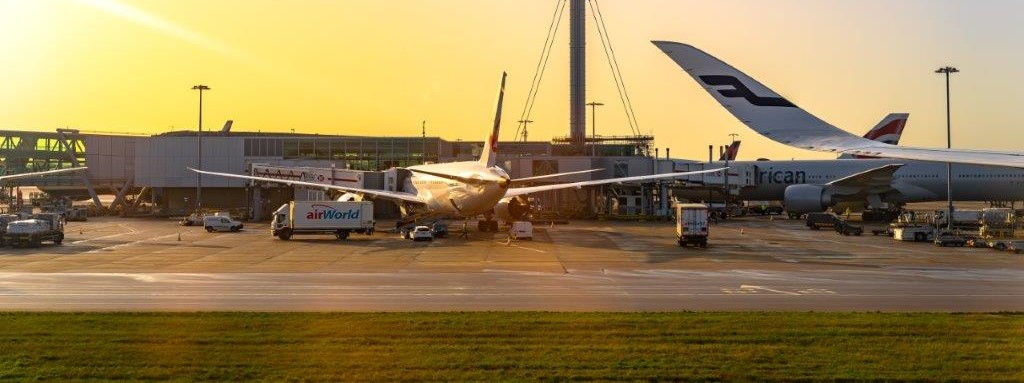Level 5
Achieve level 2 English and Maths (if not already held or valid alternatives)

Level 5
Reference Number: ST0595
Entry requirements:
Individual employers will determine their own entry requirements; in addition, and in accordance with European and UK law, all prospective Air Traffic Controllers must obtain an EU Class 3 medical certificate.
Details of standard and occupational profile
The UK manages one of the busiest and most complex pieces of airspace in the world. A range of specialist air traffic controller roles contribute to the safe and efficient movement of aircraft with civil and military operations working collaboratively to maintain a fully integrated service to all users, 24 hours a day, every day of the year Air Traffic Controllers work in a number of aviation environments such as an air traffic control centres, commercial airports, military bases and aerodromes, or other airfields; some air traffic controllers find their training and experience useful in consultancy, aerospace manufacturing or in the global aerospace industry.
The guiding principle of air traffic control is to deliver a safe, efficient and reliable service using their knowledge and skills.
Air traffic controllers in the UK would usually work for a commercial/ civil employer or the military. Tasks will vary depending on the specialism of the air traffic controller but include:
The apprenticeship adopts a core and options approach to allow flexibility for employers and enable transferability between roles and employers for apprentices. All apprentices must attain competence in each of the core knowledge, skills and behaviours.
In addition, one specialist option (for additional knowledge and skills) must be taken out of the eight specialisms listed further below, which are:
Civil Area/ Terminal Controller, Civil Approach Controller, Civil Approach Procedural Controller, Civil Aerodrome Controller, Military Weapons Controller, Military Area Radar Controller, Military Terminal Radar Controller, Military Terminal Aerodrome Controller.
| QAN | TBC |
|---|---|
| Type | End-point Assessment |
| Level | 5 |
| Product Code | L5EPATC |
| Duration of Apprenticeship | 15 months (this does not include EPA) |
| EPA Components | 1. Practical Assessment a. Live observation b. Emergency / unplanned events simulated assessment 2. Oral Assessment – Professional discussion |
The EPA period should only start once the employer is satisfied that the apprentice is consistently working at or above the level set out in the occupational standard, that is to say they have achieved occupational competence. In making this decision, the employer may take advice from the apprentice’s training provider(s), but the decision must ultimately be made solely by the employer.
Apprentices must not be put forward for their End-point Assessment before they are ready.
Further information can be found at the Institute for Apprenticeships & Technical Education (IfATE) webpage –
https://www.instituteforapprenticeships.org/apprenticeship-standards/air-traffic-controller-v1-0
Due to ongoing growth, we are always looking to recruit Independent End Point Assessors, if you meet the requirements and are interested in becoming an Independent End Point Assessor for FutureQuals, please get in touch.
Please click here to view the full person and job specification
This site uses cookies. By continuing to browse the site, you are agreeing to our use of cookies.
We have updated our privacy policy to meet General Data Protection Regulation requirementsOK×We may request cookies to be set on your device. We use cookies to let us know when you visit our websites, how you interact with us, to enrich your user experience, and to customize your relationship with our website.
Click on the different category headings to find out more. You can also change some of your preferences. Note that blocking some types of cookies may impact your experience on our websites and the services we are able to offer.
These cookies are strictly necessary to provide you with services available through our website and to use some of its features.
Because these cookies are strictly necessary to deliver the website, refuseing them will have impact how our site functions. You always can block or delete cookies by changing your browser settings and force blocking all cookies on this website. But this will always prompt you to accept/refuse cookies when revisiting our site.
We fully respect if you want to refuse cookies but to avoid asking you again and again kindly allow us to store a cookie for that. You are free to opt out any time or opt in for other cookies to get a better experience. If you refuse cookies we will remove all set cookies in our domain.
We provide you with a list of stored cookies on your computer in our domain so you can check what we stored. Due to security reasons we are not able to show or modify cookies from other domains. You can check these in your browser security settings.
These cookies collect information that is used either in aggregate form to help us understand how our website is being used or how effective our marketing campaigns are, or to help us customize our website and application for you in order to enhance your experience.
If you do not want that we track your visit to our site you can disable tracking in your browser here:
We also use different external services like Google Webfonts, Google Maps, and external Video providers. Since these providers may collect personal data like your IP address we allow you to block them here. Please be aware that this might heavily reduce the functionality and appearance of our site. Changes will take effect once you reload the page.
Google Webfont Settings:
Google Map Settings:
Google reCaptcha Settings:
Vimeo and Youtube video embeds:
The following cookies are also needed - You can choose if you want to allow them:
